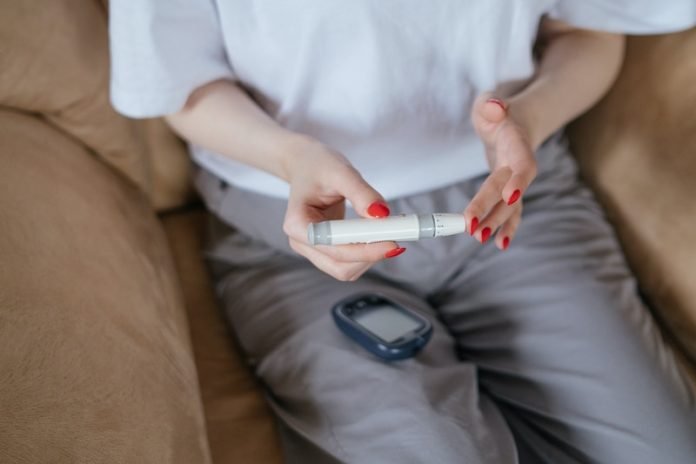
A shocking one-third of adults with Type 2 diabetes might be walking around with undetected heart issues, according to new research.
These heart risks may not show any symptoms, making them a “silent threat” that could lead to severe problems like heart failure or even death. So, what’s the key to identifying these risks before they turn into a major crisis?
Markers in the Blood Reveal Hidden Risks
Usually, doctors focus on cholesterol levels to manage heart risks in people with Type 2 diabetes.
However, this study, led by Elizabeth Selvin, a professor at Johns Hopkins Bloomberg School of Public Health, suggests that might not be enough.
The research showed that two proteins in the blood, known as cardiac biomarkers, can give us a better clue about hidden heart issues.
These biomarkers are typically used to diagnose severe heart problems like heart attacks or heart failure.
But in this study, slightly elevated levels of these proteins were found in many people with Type 2 diabetes who had no symptoms or history of heart issues.
According to Selvin, these biomarkers give us a window into who is most at risk among the 27 million adults in the U.S. with Type 2 diabetes.
What Did the Study Find?
The study analyzed health data and blood samples from over 10,300 adults, collected between 1999 and 2004. It found that:
About one-third (33.4%) of adults with Type 2 diabetes had signs of hidden heart problems, compared to just 16.1% of those without diabetes.
Among adults with Type 2 diabetes, those with elevated levels of these proteins had a higher risk of death, even after accounting for other factors like age, race, and income.
People with uncontrolled blood sugar levels and a longer history of diabetes had significantly higher levels of one of the biomarkers.
The research reveals that cholesterol isn’t the only factor to consider in managing heart risk for people with Type 2 diabetes.
These findings may shift the focus toward more comprehensive screening methods that include checking these biomarkers.
Selvin suggests that additional therapies, beyond just cholesterol-lowering medications, might be needed to lower heart risks in these individuals.
Although this study was comprehensive and one of the first to represent the general population, it did have limitations.
For instance, it did not identify specific heart issues like heart failure or stroke events. So, more research is needed.
Looking Ahead
Given that over 100,000 U.S. deaths in 2020 were attributed to diabetes and an estimated 1.64 million deaths globally, understanding these hidden risks is crucial.
This study highlights the need for routine measurement of cardiac biomarkers to prevent heart-related complications, especially for those with Type 2 diabetes who are already at higher risk.
Selvin believes that doing so could help healthcare providers zero in on preventive measures for those who need it most.
If you care about diabetes, please read studies that pomace olive oil could help lower blood cholesterol, and honey could help control blood sugar.
For more information about diabetes, please see recent studies about Vitamin D that may reduce dangerous complications in diabetes and results showing that plant-based protein foods may help reverse type 2 diabetes.
The study was published in the Journal of the American Heart Association.
Follow us on Twitter for more articles about this topic.
Copyright © 2023 Knowridge Science Report. All rights reserved.



